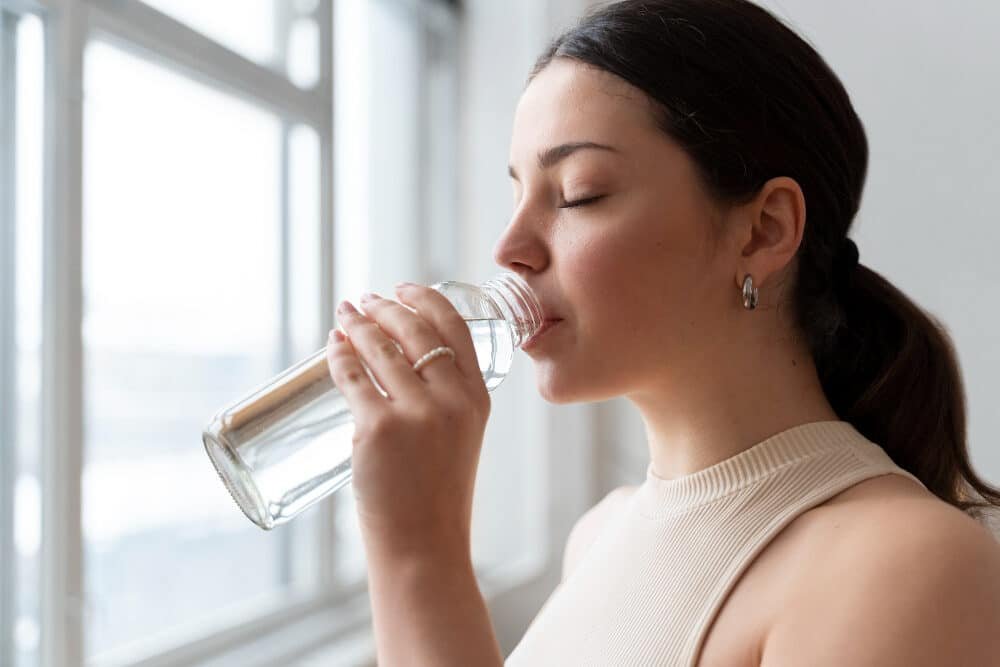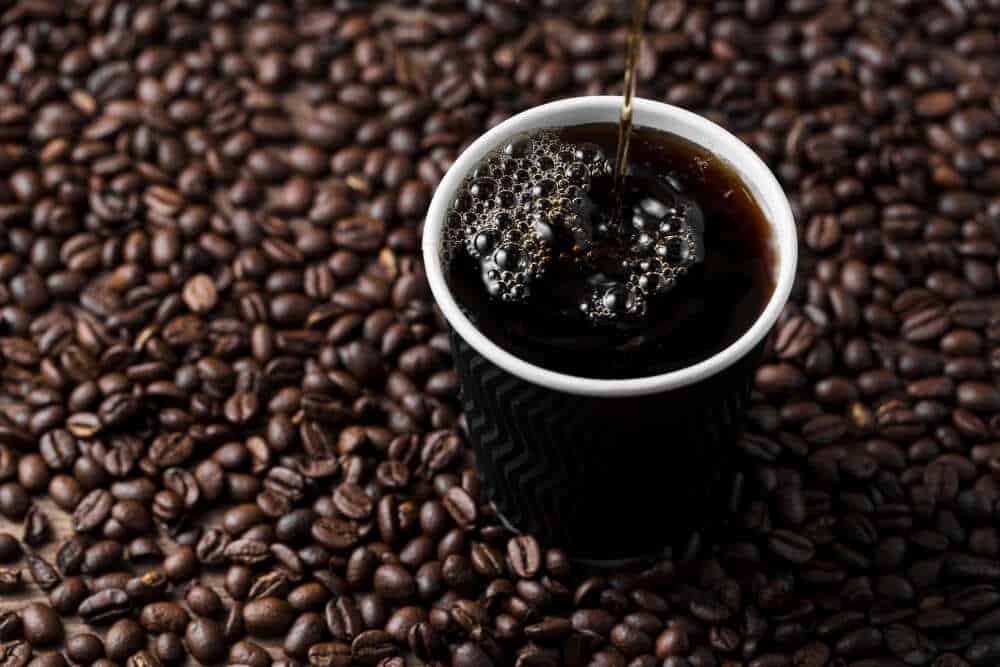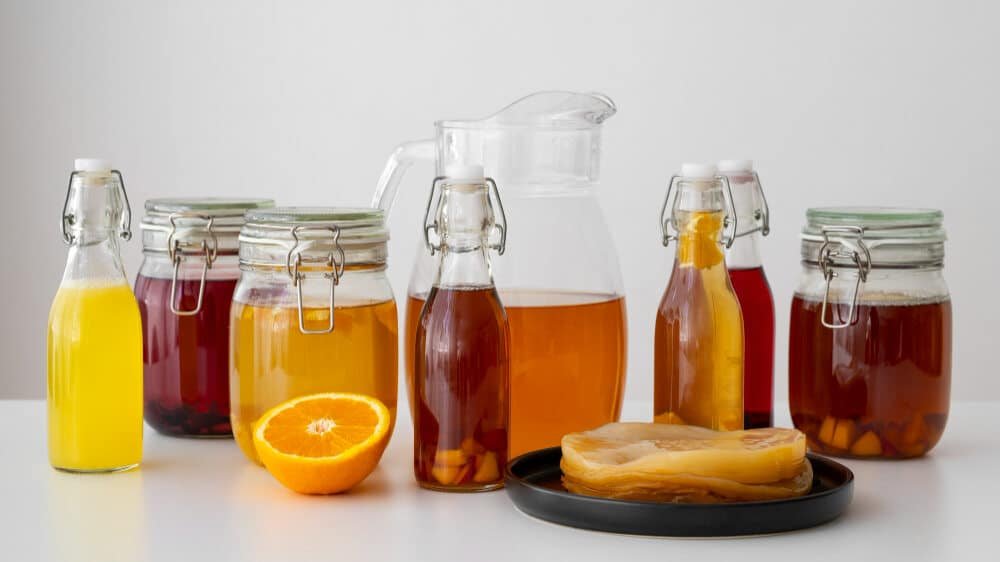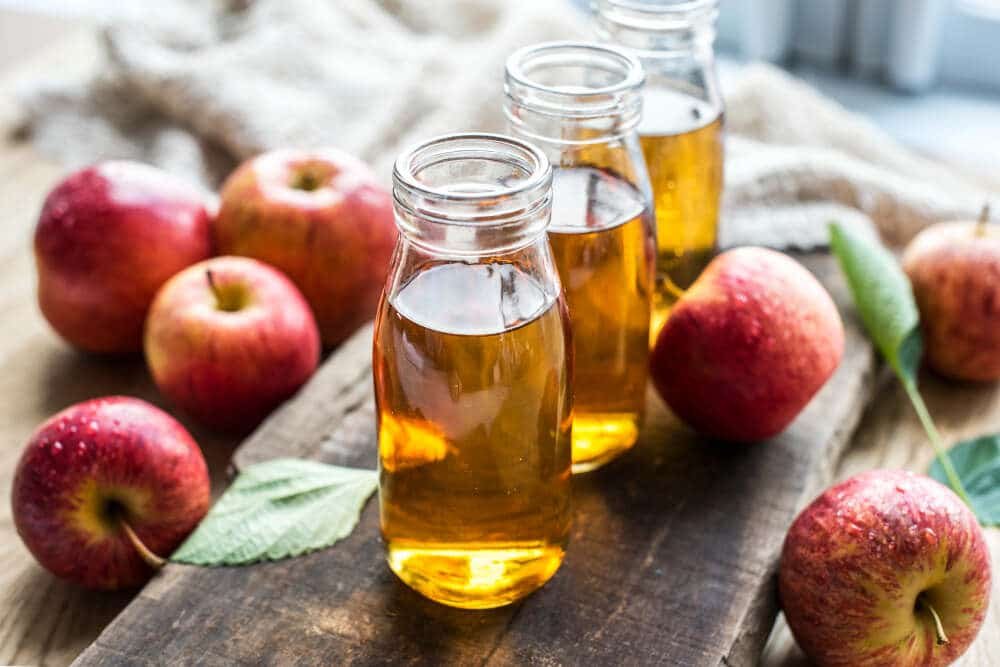Introduction – The Power of Proper Hydration During Fasting
Are you unknowingly disrupting your intermittent fasting results with the wrong drinks? Many people make this common mistake, unknowingly breaking their fast and reducing their fat-burning power! But don’t worry – in this guide about “what to drink during intermittent fasting?” I’ll show you the best drinks that keep you in a fasting state while maximizing your energy, metabolism, and hydration.
Intermittent fasting has taken the wellness world by storm, and it’s easy to see why. Many claim that it can help with everything from weight management to better blood sugar control and even enhanced brain function. But one of the biggest questions that arises for those diving into this lifestyle is: what can you drink during your fasting hours?

This is a crucial topic, as many drinks can sneak in calories or trigger insulin spikes, which could disturb all those amazing health benefits of fasting you’re aiming for. In this blog post, we’ll explore a variety of beverages that are totally acceptable during your fasting periods. Let’s keep you hydrated and aligned with your goals while you enjoy the journey of intermittent fasting!
In this comprehensive guide, we’ll cover:
✔ Best drinks to consume during fasting (and why they work)
✔ Beverages that break a fast (and what to avoid)
✔ How drinks impact insulin levels, fat burning, and gut health
✔ Expert-backed tips for staying hydrated and energized
Whether you’re following 16:8, alternate-day fasting, or another intermittent fasting schedule, this guide will help you make the best hydration choices.
Want a deep dive into Intermittent Fasting for Fat Loss? Check out this in-depth guide to supercharge your results!
Best Drinks During Fasting Windows
In this blog with related to best drinks, it can’t be explained as a short answer. So get to know the list of the most efficient drinks and get benefitted in a great way for a long term.
1. Plain Water: The Ultimate Hydration Hack for Intermittent Fasting
The foundation of any good fasting regimen, water provides essential hydration without affecting insulin levels.
- Zero calories means it doesn’t affect insulin levels or blood sugar
- Add lemon water or lime juice for flavor and vitamin C and provide immune system support (won’t break your fast)
- Mineral water is another excellent choice as it contains natural minerals that support electrolyte balance during calorie restriction.
- Helps flush toxins and reduce oxidative stress
Pro Tip: Aim for 2-3 liters daily, spacing intake throughout your fasting window.
2. Black Coffee: A Fasting Powerhouse
A morning coffee can be particularly beneficial during fasting periods. The caffeine stimulates metabolism while the antioxidants in coffee, including chlorogenic acid, may improve insulin sensitivity.

Contains caffeine that boosts energy levels and metabolism
Rich in antioxidants that may improve insulin sensitivity
Research in the New England Journal of Medicine links coffee to reduced heart disease risk
Must be plain black coffee – no cream, milk, or sugar
Best Time: Morning coffee aligns with natural cortisol rhythms for maximum fat burning.
3. Herbal and Green Teas
These non-caloric beverages offer numerous potential health benefits. For optimal benefits, brew your tea properly and avoid adding sweeteners.
Green tea contains epigallocatechin gallate (EGCG), a powerful antioxidant that may enhance fat burning.
Peppermint tea aids digestion and reduces bloating

Chamomile tea promotes relaxation without affecting blood glucose levels
All are non-caloric beverages that won’t break your fast
Brewing Tip: For potential health benefits, brew your tea properly for 3-5 and avoid adding sweeteners.
Beverages That Break Your Fast
Sugary Drinks and Fruit Juices
These beverages can cause rapid spikes in insulin levels, effectively interrupting the body’s ability to burn fat efficiently.
Even juices labeled as 100% natural are often packed with concentrated sugars, which can mislead consumers into thinking they are making a healthier choice.
The high sugar content in these drinks can result in energy crashes shortly after consumption, leaving individuals feeling fatigued and hungrier than before.
Sodas and Artificial Sweeteners
Diet sodas are beverages that utilize artificial sweeteners to deliver a sweet flavor while significantly reducing calorie intake. Nevertheless, research indicates that these artificial sweeteners might interfere with hunger regulation, potentially leading to increased food consumption during meals. Conversely, other studies propose that diet sodas could aid in weight loss efforts. When consumed in moderation, diet sodas may serve as an occasional indulgence, particularly for those practicing intermittent fasting.
May negatively impact gut microbiome balance
Can increase cravings for sweet foods
A good way to enjoy diet soda is to observe how it affects your hunger levels and cravings. If drinking diet soda leads to increased hunger or cravings, it is best to avoid it while intermittent fasting.
3. Alcoholic Beverages
Provides empty calories that halt fat metabolism – Alcohol is metabolized first by the liver, putting fat-burning on hold until the body processes it completely. This means that even a low-calorie drink can interfere with weight loss, as the body prioritizes alcohol over breaking down stored fat.

Dehydrates the body and impairs judgment about food choices – Alcohol acts as a diuretic, causing excessive fluid loss, which can lead to dehydration and electrolyte imbalances. Additionally, it lowers inhibitions and increases cravings for high-calorie, processed foods, making it easier to overeat without realizing it.
Disrupts sleep quality, which is crucial for weight management – While alcohol may initially make you feel drowsy, it disrupts deep sleep and REM cycles, leading to poor rest and increased fatigue. Sleep deprivation, in turn, elevates cortisol levels and hunger hormones like ghrelin, making it harder to resist unhealthy food choices the next day.
Healthy Beverages for Your Eating Window
When it’s time to break your fast, choose drinks that support nutrient absorption and gut health:
1. Bone Broth
Rich in amino acids like glycine and proline – Bone broth is packed with glycine and proline, two essential amino acids that aid in tissue repair, muscle recovery, and collagen production. These compounds also support detoxification processes in the liver, making bone broth a powerful addition to any diet.
Supports healthy gut lining and provides electrolytes – The gelatin and collagen in bone broth help strengthen the gut lining, reducing inflammation and promoting better digestion. It’s also a natural source of essential electrolytes like potassium, magnesium, and sodium, which help maintain hydration and prevent muscle cramps.
Particularly beneficial after longer fasting periods – After an extended fast, bone broth provides easily digestible nutrients that gently reintroduce food into your system without overwhelming digestion. The combination of amino acids and electrolytes helps replenish lost minerals and supports a smooth transition back into eating.
2. Protein Shakes
Use lean proteins like whey or plant-based options – Choosing high-quality protein sources like whey isolate, pea, or hemp protein ensures you’re getting the essential amino acids needed for muscle repair and satiety. These proteins are quickly absorbed, making them an excellent option for breaking a fast without spiking blood sugar.
Add MCT oil or coconut oil for sustained energy – Medium-chain triglycerides (MCTs) from coconut or MCT oil provide a quick, efficient energy source that bypasses normal fat digestion. Adding a small amount to your shake can enhance mental clarity, curb hunger, and support ketosis if you’re following a low-carb or intermittent fasting routine.

Helps maintain lean muscle mass during calorie restriction – When reducing calorie intake, muscle loss can be a concern, but a protein-rich shake ensures your body gets the necessary nutrients for muscle preservation. Maintaining lean muscle mass not only improves metabolism but also keeps you feeling stronger and more energetic throughout the day.
3. Vegetable Juices
Unlike fruit juices, provides nutrients without sugar spikes – Unlike fruit-based juices, which can cause blood sugar spikes, vegetable juices deliver essential vitamins and minerals with minimal impact on insulin levels. This makes them a refreshing, nutrient-dense option for hydration and nourishment without the crash associated with sugary drinks.
Combine leafy greens with cucumber, celery, and ginger – A mix of leafy greens like spinach or kale, hydrating cucumber, mineral-rich celery, and anti-inflammatory ginger creates a powerhouse juice packed with vitamins and antioxidants. This combination supports detoxification, improves digestion, and provides a natural energy boost.
Rich in antioxidants that support the immune system – Vegetable juices are loaded with immune-boosting compounds such as vitamin C, beta-carotene, and polyphenols, which help fight oxidative stress. Drinking these regularly can enhance your body’s defense mechanisms, reduce inflammation, and promote overall well-being.
4. Fermented Beverages
Unsweetened kombucha and kefir provide probiotics Naturally fermented drinks like kombucha and kefir are excellent sources of probiotics, which replenish beneficial gut bacteria. Choosing unsweetened varieties ensures you receive all the digestive benefits without unnecessary sugar that could disrupt gut health.
Supports a healthy gut microbiome
A thriving gut microbiome is essential for digestion, immune function, and even mental health. Fermented beverages help balance gut bacteria, reduce bloating, and improve nutrient absorption, making them a valuable addition to a well-rounded diet.

May improve nutrient absorption from foodsProbiotics found in these drinks enhance the body’s ability to break down and absorb essential nutrients, ensuring you get the most out of your meals. This can be particularly beneficial for those with digestive issues or anyone looking to optimize their overall health.
Advanced Hydration Strategies
For those practicing extended fasts (24+ hours), proper hydration isn’t just about drinking water, it’s about maintaining electrolyte balance and supporting metabolic function. Here are two powerful hydration strategies to enhance fasting benefits while preventing fatigue, headaches, and muscle cramps.
1. Electrolyte Supplementation
Add a pinch of high-quality salt to water for sodium – When fasting for extended periods, the body excretes more sodium through urine, which can lead to dehydration and fatigue. Adding a pinch of mineral-rich salt, such as Himalayan pink salt or sea salt, to your water helps replenish sodium levels, preventing dizziness and maintaining hydration.
Magnesium supplements can prolong fasting. A deficiency can lead to muscle cramps, headaches, and irritability, so supplementing with magnesium citrate or glycinate can help keep muscles relaxed and energy levels stable.
Helps maintain blood pressure during calorie restriction – Extended fasting can sometimes cause a drop in blood pressure due to fluid and electrolyte loss. Ensuring adequate intake of sodium, potassium, and magnesium helps stabilize blood pressure, preventing lightheadedness and fatigue, especially when transitioning between fasting and eating periods.
2. Apple Cider Vinegar Water
Apple cider vinegar (ACV) is a debated yet potentially beneficial addition to intermittent fasting, particularly when consumed before meals. Although it contains negligible calories, some believe that its acetic acid content can influence digestion and hunger cues. However, consuming too much on an empty stomach may irritate the gut lining, leading to discomfort.
If you choose to include ACV in your fasting routine, dilute one tablespoon in a glass of water and drink it before meals. This helps regulate blood sugar levels, potentially reducing insulin spikes and cravings that could disrupt your fasting window. Research suggests that ACV enhances insulin sensitivity, allowing your body to process carbohydrates more efficiently when you break your fast. Additionally, its acidity may aid digestion by stimulating stomach acid production, improving nutrient absorption, and preventing bloating.

Beyond digestion, ACV has been linked to heart health benefits, including lowering cholesterol and supporting healthy blood pressure levels. While individual responses vary, incorporating ACV into your hydration strategy could help optimize fasting benefits. just be sure to dilute it properly to protect your teeth and stomach lining.
Timing Your Beverages for Maximum Benefits
Morning Routine: Begin your day with a cup of black coffee or green tea. These beverages are not only low in calories, but they are also known to enhance fat burning due to their caffeine and catechin content, respectively. This boost can help kickstart your metabolism and provide the energy you need to tackle the day ahead.
Midday Care: During your fasting window, consider sipping on herbal teas. Varieties such as peppermint, ginger, or rooibos can effectively manage hunger and provide hydration without breaking your fast. The natural flavors can also help keep cravings at bay, making it easier to stay focused and on track.
Evening Wind Down: As the day comes to a close, treat yourself to a soothing cup of chamomile tea. This herbal infusion is renowned for its calming properties and can aid in relaxation, preparing your body for a restful night’s sleep. It may also enhance sleep quality, allowing you to wake up refreshed and rejuvenated.
Breaking Your Fast: When it’s time to break your fast, start gently with a warm cup of bone broth or a protein shake. Bone broth is rich in nutrients and easy on the digestive system, making it an excellent choice to ease your body back into digestion. Alternatively, a protein shake can provide a quick source of nourishment to replenish your energy and support muscle recovery after fasting.
Q: Does lemon water break a fast?
A: No – a squeeze of lemon juice or lime juice in water is fine and provides vitamin C.
Q: Can I drink bulletproof coffee while fasting?
A: Traditional versions break the fast due to calories. A modified version with just 1 tsp MCT oil may be acceptable for some.
Q: How much water should I drink while Intermittent fasting?
A: About 35ml per kg of body weight, plus extra for exercise. Pale yellow urine indicates good hydration.
Q: Are diet sodas ever okay during fasting?
Even though diet sodas have zero calories, some artificial sweeteners can still trigger an insulin response, making fasting less effective. If you crave something fizzy, try sparkling mineral water instead!
The Best Intermittent fasting guide in Amazon
This transformative guide is your key to harnessing the science-backed power of fasting, designed specifically for the female body. Learn how to rev up your metabolism, balance hormones, and achieve sustainable weight loss without restrictive diets or endless calorie counting.
Packed with expert insights and actionable strategies, this book empowers you to take control of your health, on your terms. If you’re ready to transform your body, elevate your mind, and boost your confidence, this is your game-changer.
Grab your copy today!
Conclusion to remember
Do Drink During Fasting: (Zero or low-calorie beverage)
Plain water (with lemon/lime if desired)
Black coffee
Herbal and green teas (preferably unsweetened tea)
Mineral water for electrolytes
Best Post-Fast Beverages:
Bone broth
Protein shakes
Vegetable juices
Fermented drinks like kombucha
Avoid During Fasting:
Sugary drinks and fruit juices
Diet sodas with artificial sweeteners
Alcoholic beverages
Milk or creamers
Intermittent fasting works best when paired with the right drinks that keep your metabolism fired up and your energy levels high. Now that you know what to drink and what to avoid, it’s time to put this into action!
Which drink from this list is your favorite? Let me know in the comments!



